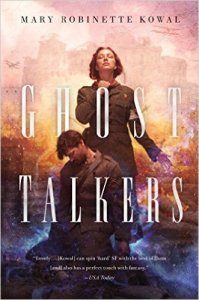Gary K. Wolfe reviews Hannu Rajaniemi
 A couple of years ago Hannu Rajaniemi made one of the most spectacular first-novel debuts in recent memory with The Quantum Thief, which employed a powerfully seductive – if not entirely new – narrative strategy of linking a wildly inventive and disorienting post-singularity future with a comparatively straightforward adventure plot, partly derived from the decidedly more linear mysteries of Maurice Leblanc. It was a clever strategy: for all the high-tech estrangement and tantalizing neologisms about spimescapes and gogols, we eventually took some comfort in settling into a tale that, in the end, was about a boy detective versus a master thief. It placed in the Locus and Campbell awards and should have done better, but was possibly a victim of having been published in different years in the US and the UK.
A couple of years ago Hannu Rajaniemi made one of the most spectacular first-novel debuts in recent memory with The Quantum Thief, which employed a powerfully seductive – if not entirely new – narrative strategy of linking a wildly inventive and disorienting post-singularity future with a comparatively straightforward adventure plot, partly derived from the decidedly more linear mysteries of Maurice Leblanc. It was a clever strategy: for all the high-tech estrangement and tantalizing neologisms about spimescapes and gogols, we eventually took some comfort in settling into a tale that, in the end, was about a boy detective versus a master thief. It placed in the Locus and Campbell awards and should have done better, but was possibly a victim of having been published in different years in the US and the UK.
But of course, that wasn’t quite the end of the tale, and it wasn’t just about the detective pursuing the thief. There was a lot more to Rajaniemi’s future than The Quantum Thief really needed or could sustain, and now with The Fractal Prince – the second novel in a projected trilogy – we begin to learn that a great deal more is at stake. Middle novels in series are always problematic; we’re learning whether the series is going to be one large continuous novelistic arc, a series of more or less discrete episodes strung like beads along a loosely-unified tale, separate novels arranged along a common time frame, or even independent novels united by little more than themes or common characters. The Fractal Prince seems to fall somewhere between the first and second of these, following up on some trails laid out in The Quantum Thief while introducing a new set of characters and a much stronger political theme. It also returns to the technique of linking Rajaniemi’s enthusiasm for his invented terminology – hardly any sentence consists only of words you already know – with a more familiar literary model. In this case that model seems to be the Thousand and One Nights, which hardly provides the same sort of simple narrative lifeline as a Lupin-style mystery. But storytelling is an important aspect of what Rajaniemi is up to here; he offers all sorts of tales within tales, often with their own titles, and he reminds us more than once that we are, or become, the stories we tell about ourselves. The idea of combining a sort of postmodern take on an ancient story cycle with Rajaniemi’s radically post-Strossian future is both ambitious on his part and challenging for the reader, and the results are a little mixed.
The Fractal Prince follows two story lines. In one, the thief Jean le Flambeur – or some iteration of him – is still aboard the Perhonen, the spaceship with the rather sardonic AI owned by the formidable Mieli, who rescued him from prison in the first novel. They are on their way to Earth on a mission from Mieli’s unnamed employer, but first Jean must figure out how to open a trick box (a sort Yosegi puzzle by way of Schrödinger) that may provide clues for their quest. In the other, we are introduced to Tawaddud, a rebellious young woman in the city of Sirr, whose family assigns her, for purely political reasons, the unwelcome task of serving as companion to a wealthy visiting gogol merchant named Abu Nuwas (gogols are essentially uploaded minds used as slaves). Sirr needs his vote on accords to be worked out with the ruling collective the Sorbornost, which had done some serious damage years earlier during an event called the Cry of Wrath. Of course neither Jean’s nor Tawaddud’s missions are quite what they expect them to be, nor are many characters necessarily who they seem. Tawaddud finds herself being asked to investigate the mysterious deaths of three council members – about the only nod here to the mystery plot of the first novel – and as various instabilities mount up to suggest a possible revolution against the Sobornost, she has to deal with the fearsome Sumanguru, a kind of marshal sent from the Sobornost to clean up the town. Jean, for his part, has a hard time remaining roguish as he undergoes a series of trials – the ship attacked by lethal swarms of diamond-like weapons, the need to find a ‘‘zoku router’’ which will help them survive the next attack by ‘‘hunters,’’ even getting caught and tied up like a pulp hero by a virtual tiger after he makes his way to an environment called the Realm. He’s like Indiana Jones, if Jones were some sort of unholy brainchild concocted by Roger Penrose and Erwin Schrödinger after an evening of drinking.
Most of this does get braided together as the stories converge in ingenious ways (though there are a few bait hooks left out for volume three) and with impressively large stakes, but it’s that very ingenuity that creates a kind of narrative dissonance that was largely absent in all but the opening chapters of The Quantum Thief. Any writer with a capacity for invention as fecund as Rajaniemi’s is at risk for a certain degree of self-indulgence, and there is a sense that Rajaniemi simply has more stories to tell than he can pack comfortably in the framework of what is largely, at base, a space opera crossed with a political melodrama. We often begin to get our bearings in one situation only to be whiplashed off to another story altogether. Some of these tales are spectacularly well done as adventure set pieces, such as the attack by those diamond-needles, while others are genuinely moving, such as when Tawaddud shows Abu the poverty-stricken parts of Sirr and her own vocation as a healer of ‘‘wildcode’’ infections, or when we learn the full backstory of Mieli and her lost lover Sydän. Rajaniemi can and does write beautifully about characters trapped in their own stories, but there are moments when we wish he would give them – and us – a bit more breathing space.








Pingback:Locus Online Monitor » New Books, 27 November